Ancient Roman Marble Head of a Young Satyr or Pan
An Ancient Roman Marble Head of a Young Satyr or Pan with Smiling Face Displaying his Pointed Ears and Two Small Horns to his Forehead
1st Century BC - 1st Century AD
Size: 24cm high, 16.5cm wide, 20cm deep - 9½ ins high, 6½ ins wide, 8 ins deep
1st Century BC - 1st Century AD
Size: 24cm high, 16.5cm wide, 20cm deep - 9½ ins high, 6½ ins wide, 8 ins deep
Ancient Roman Marble Head of a Young Satyr or Pan with Smiling Face Displaying his Pointed Ears and Two Small Horns to his Forehead
Satyrs were the followers and servants of the god Bacchus, the Greek god Dionysos. They are the spirits of the wild mountains and valleys, and are portrayed in ancient mythology as bestial in their desires and behaviour. Consequently they were given the bodies of horses or goats with human heads having horse-like ears or horns. Dionysos was a popular deity, and like Bacchus, was the potent god of wine, vegetation and ecstasy. His early wildness and his worship as the great remover of inhibitions was gradually tamed by the development of seasonable festivals, processions and sacred drama. As the god of fertile nature he is depicted on wine cups holding a vine branch while a horse tailed satyr pipes to him on a double flute.
Pan was the favourite of Dionysos. The son of Hermes, he was born in Arcadia where he played on the syrinx and haunted caves and rural idylls accompanied by revelling satyrs. He was playful and energetic, but irritable especially if disturbed during his siesta.
Pan was the favourite of Dionysos. The son of Hermes, he was born in Arcadia where he played on the syrinx and haunted caves and rural idylls accompanied by revelling satyrs. He was playful and energetic, but irritable especially if disturbed during his siesta.
Ex Private collection William H. Stokes (1921 - 2015)
Acquired 1960’s - 70’s UK Art Market
Acquired 1960’s - 70’s UK Art Market
Ancient Roman Marble Head of a Young Satyr or Pan
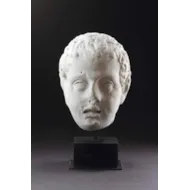
SOLD
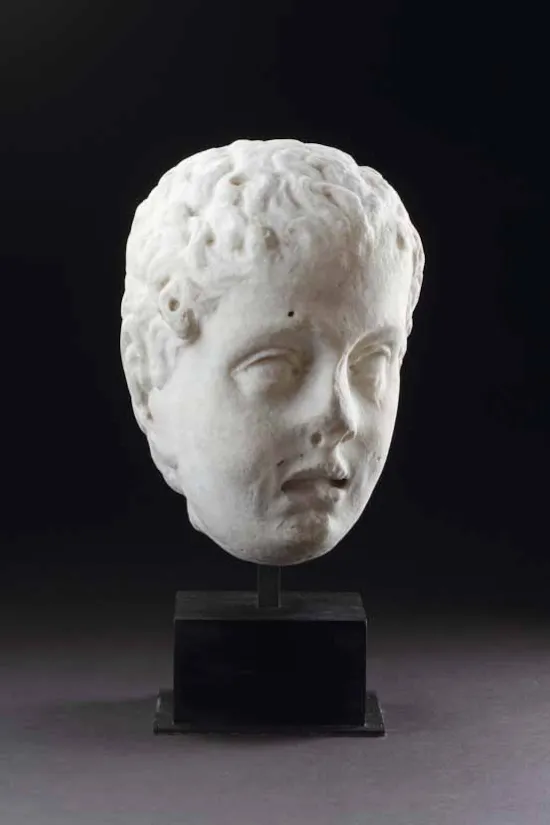
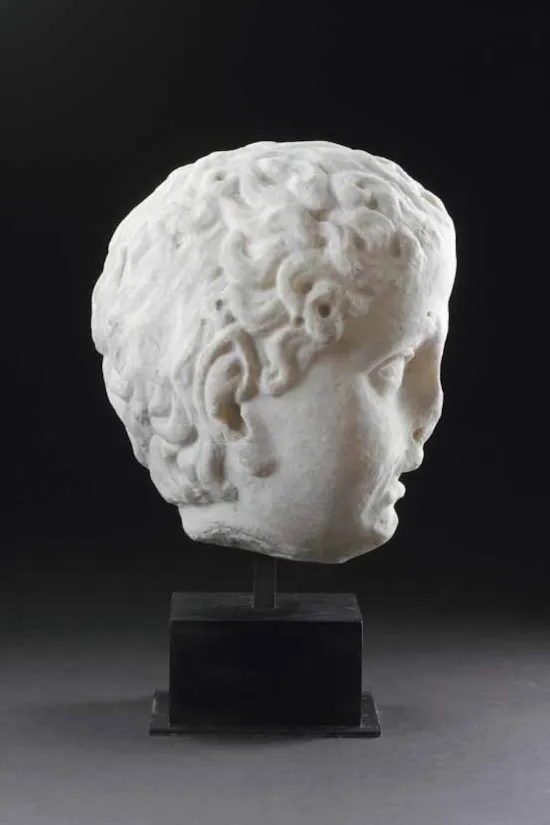
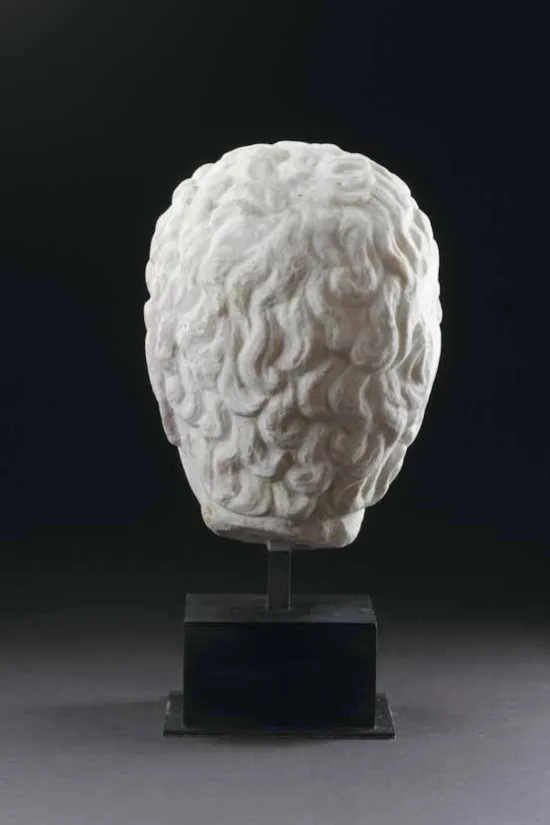
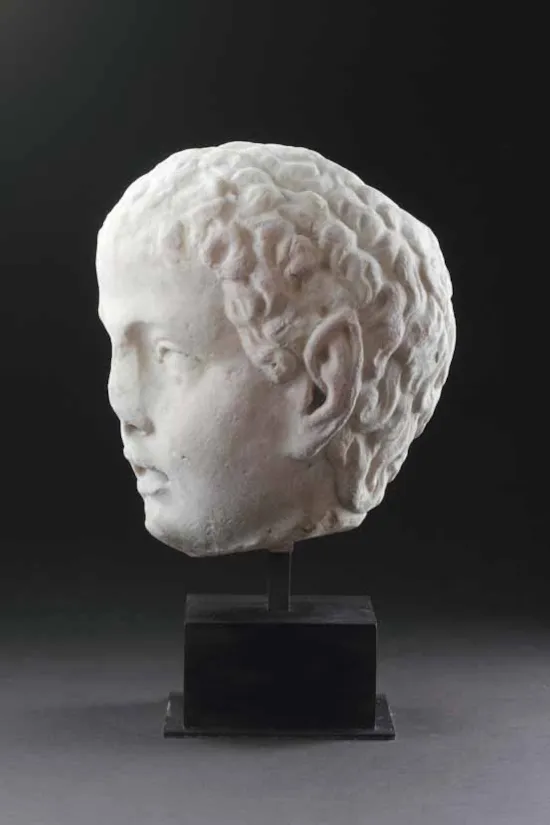
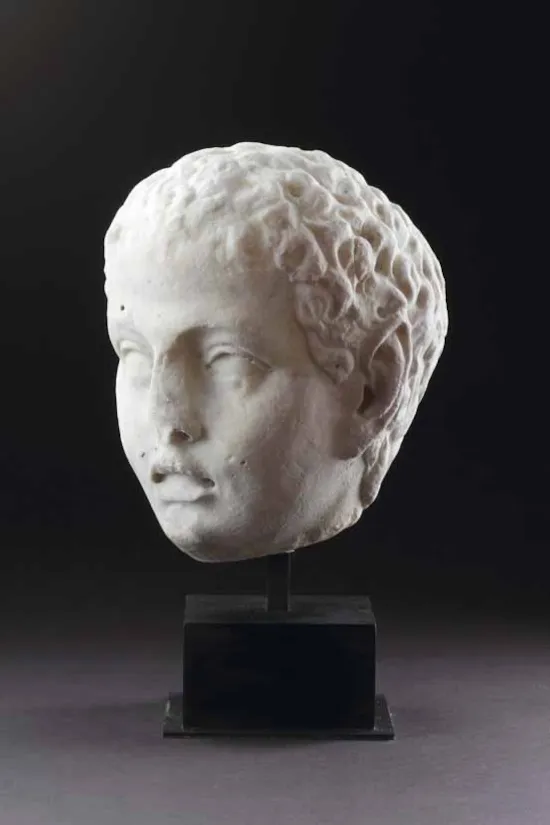
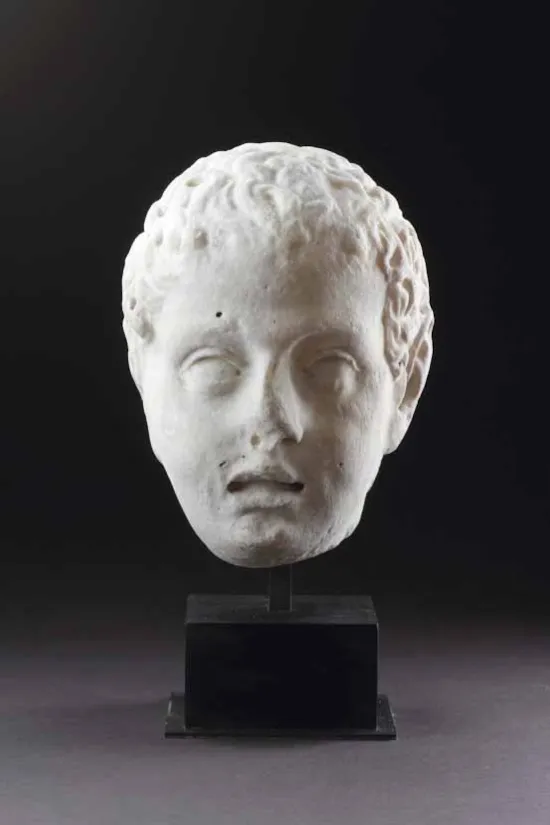






YOU MAY ALSO LIKE

